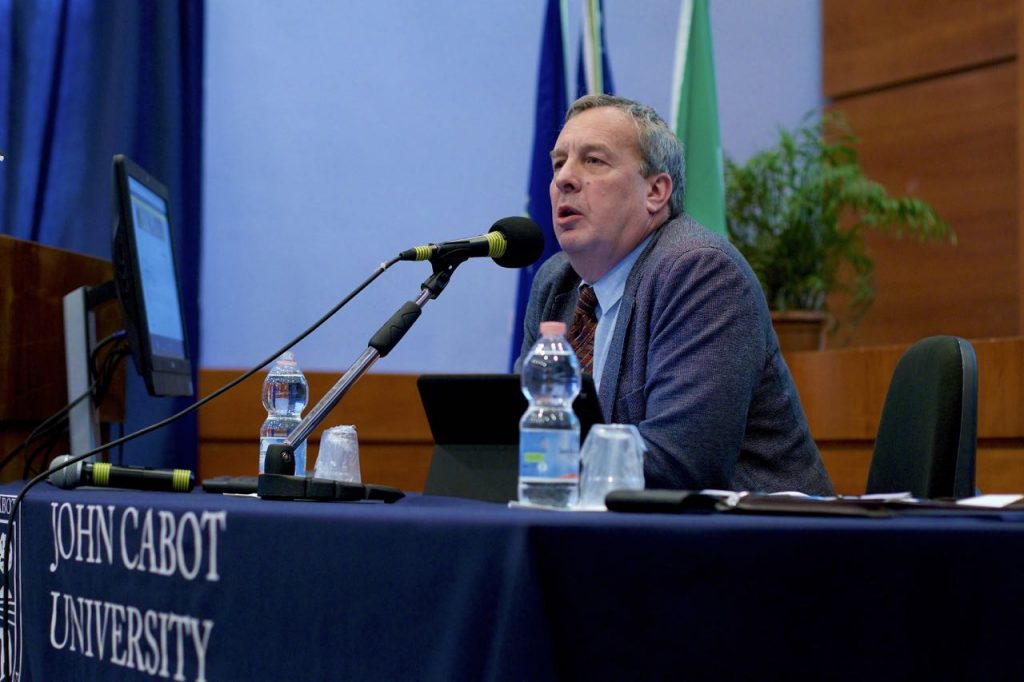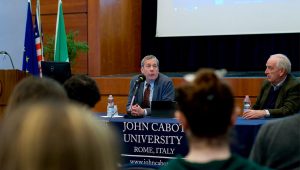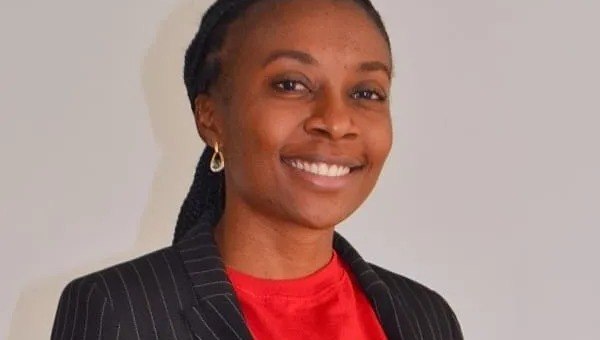Trump's Foreign Policy Toward Asia: Guarini Institute Welcomes Brad Glosserman
The Guarini Institute for Public Affairs held an event entitled Trump’s Foreign Policy Toward Asia, on March 15, 2018. Among the participants were students, professors, as well as guests from other institutions. The event was divided into 2 parts: an overview of Trump Foreign Policy in Asia and a Q&A session. The guest speaker was Brad Glosserman, a visiting professor at the Tama University Center for Rule-Making Strategies in Japan and a senior advisor for Pacific Forum, a Honolulu-based think tank, where he worked for 16 years (2001-2017), mostly as executive director.
Prof. Glosserman examined Trump’s foreign policy toward Asia, arguing that U.S. foreign policy is entering a period of great uncertainty because of President Trump’s unpredictability, policies, and great power competition. Regarding President Trump, Prof. Glosserman claimed that Trump sees himself as the main decision-maker who decides on his own. This is one of the main reasons for Trump’s unpredictability. Moreover, he lacks personnel: for example, the U.S. has no ambassador to South Korea, or special envoy for North Korea and the Assistant Secretary of State for East Asia and the Pacific was resisted by the White House while the Secretary of State was recently fired. This causes problems as the President needs experts and officials at the working level and as a result of their absence it is hard to say how decision-making is done in the White House. According to Prof. Glosserman, Trump loves chaos and unpredictability as he believes that telling the world its plans makes U.S. policy predictable and thus easily defeated. Prof. Glosserman considered this strategy dangerous for both U.S. allies and enemies as both can misinterpret future actions of the U.S., which might lead to conflict.
Apart from President Trump’s unpredictability, the policies of the Trump administration are also problematic. Prof. Glosserman argued that the new organizational framework for thinking about Asia is the “Indo-Pacific” because of trade and globalization. He argued that there is an international desire to recalibrate the strategic balance of the region by including India. However, it becomes uncertain where lines are drawn in Asia and how Asia is defined. While answering these questions, it is important to determine who states partner with in the region. The international community should recognize the fundamental shift in how the world works as the world has been focused on Asia as since the 1990s, there has been an increase in Asian power marked by the rise of China, Korea, and South-East Asia alongside Japan’s recovery. But in a world in which the West does not make all the decisions anymore, how will decisions be made and what institution will govern as new rules have not emerged yet?
The third key point in U.S. foreign policy is a return to great power competition. After the Cold War, there was a belief that history ended with the victory of liberalism over ideological conflict. But states are returning to Great Power competition: Russia competes with its national energy, resources and weapons while China is the second largest economy and develops its military. Their growing power challenges the prerogatives of existing powers, causing conflict. However, while military conflict is possible, the main competition today is economic. Trump’s economic policy seeks greater investment in the U.S. and wants trade balances to favor the U.S. Prof. Glosserman stated that this is a wrong policy as it means taking U.S. money from the world and putting it back in the U.S. This undermines long-term U.S. economic interests, especially in Asia.
Prof. Glosserman also emphasized that President Trump questions three pillars of post-war U.S. policy: alliances, an open-trade system, and multilateralism. Trump considers the U.S. a great power able to prevail in conflicts alone. According to Prof. Glosserman, Trump ignores the notion of soft power, which argues that rather than forcing other states to do something, it is better to persuade them that what the U.S. wants will benefit them too.
Prof. Glosserman’s lecture is part of a series of Guarini Institute events dedicated to Asia.
Read: “India’s Politics and Demonetization: Guarini Institute Welcomes Professor Pratishtha Singh”
(Sopho Kharazi)







